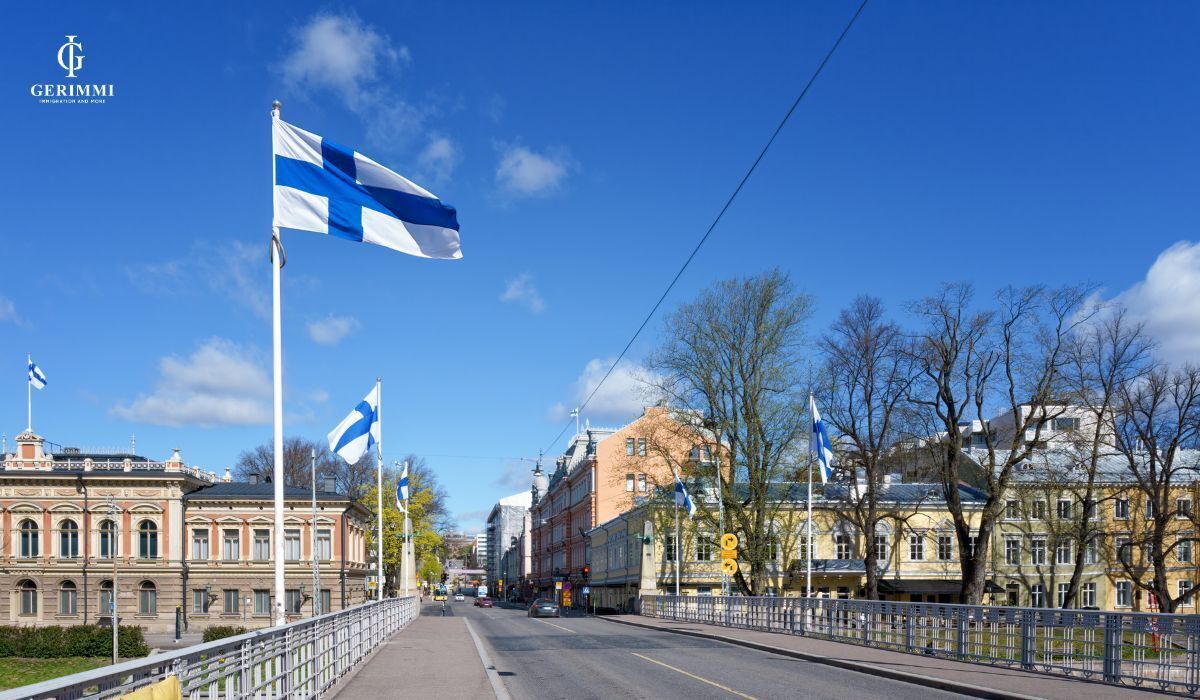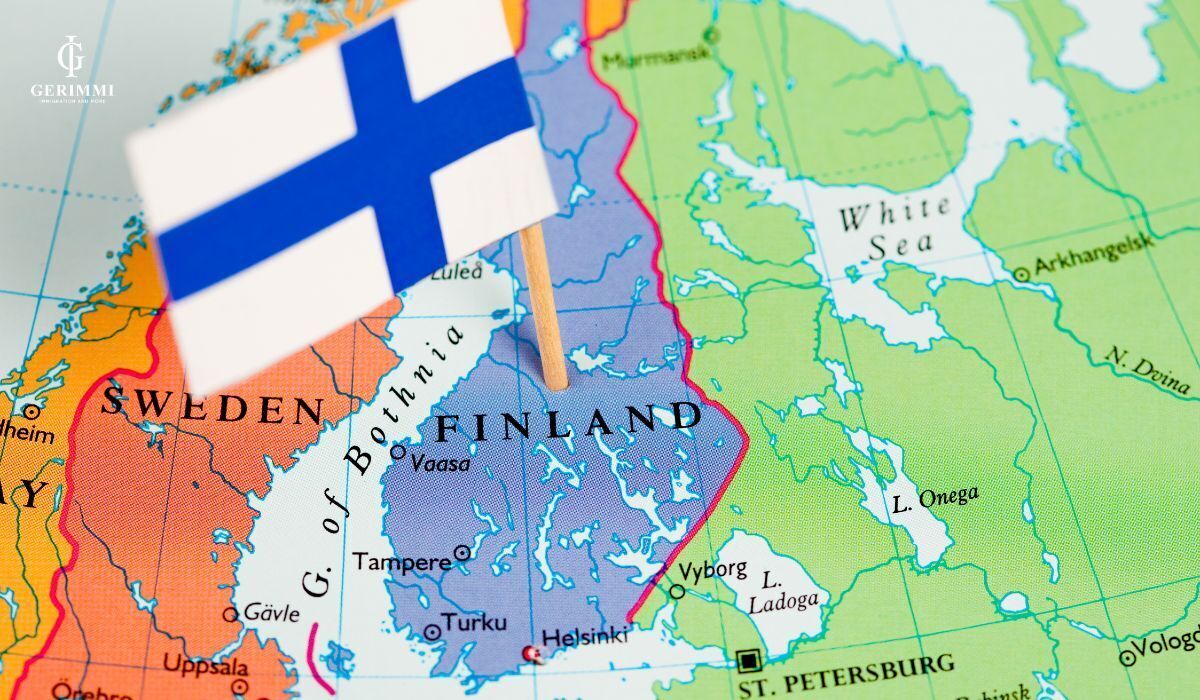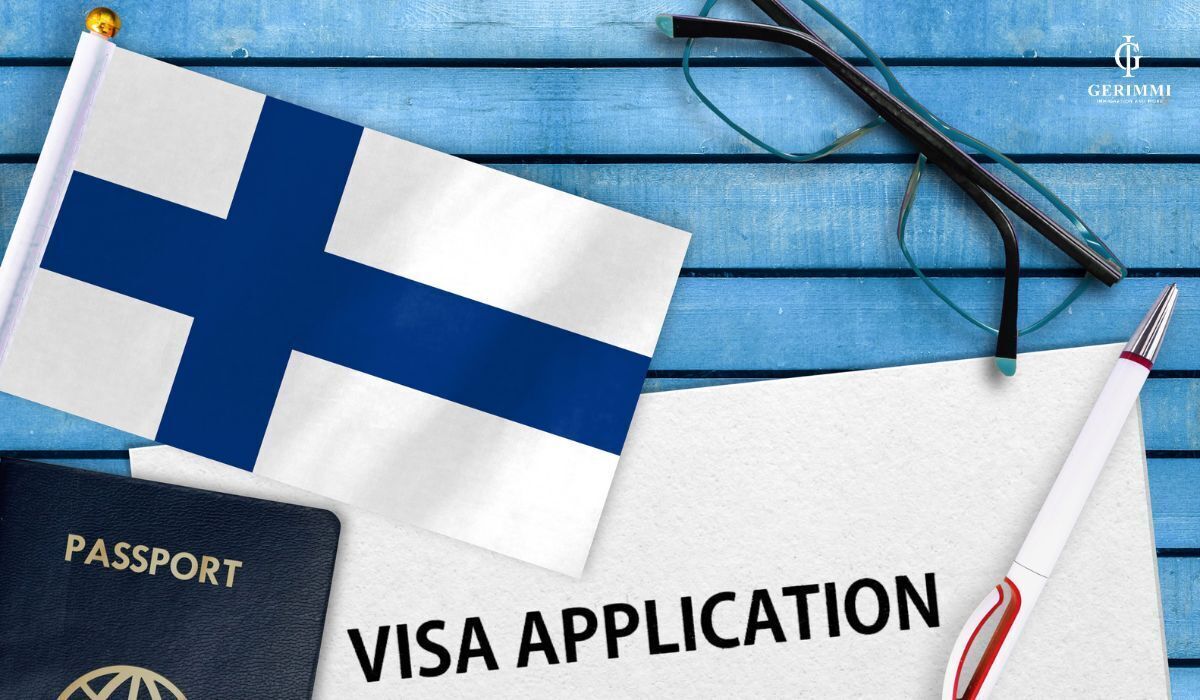Vocational training in Finland 2025 is becoming a smart choice for many young Vietnamese people thanks to reasonable costs, European-standard training quality and open job opportunities. With a model closely linked to practice, students not only learn theory but also practice, do paid internships and easily find jobs after graduation.
I. Why should you study vocational training in Finland? Benefits you don't expect
In recent years, vocational training in Finland has become a trend chosen by many young Vietnamese people instead of the traditional university path. Not only because of the more reasonable cost, but vocational training in Finland 2025 also brings many unexpected benefits:
- Low tuition, reasonable cost
Compared to other European countries such as Germany, the Netherlands or Sweden, vocational training tuition fees in Finland are much lower, and some professions are even exempted from tuition fees or have financial support. Combined with the cost of living in Finland of about 500 - 800 EUR/month, this is an economical choice while still ensuring European standard training quality.
- Top quality vocational education
Finland is ranked among the top in the world for its education system. When participating in vocational study abroad programs in Finland, students learn through practical methods, closely linked to business needs. This helps you gain solid skills right from your school days.
- Wide open employment and settlement opportunities
One of the biggest reasons why many international students choose to study vocational training in Finland is the job opportunities. During their studies, students can work 20-30 hours/week. After graduation, the opportunity to stay and work long-term and settle in Finland is very high, especially in the fields of nursing, IT, hotel-restaurant and engineering.
- Safe living environment, good social welfare
Finland is famous for being a safe, clean country with excellent social welfare policies. Studying a vocational course in Finland means you will study and work in a friendly, civilized environment with a lot of support for international students.

II. The difference between vocational study abroad and university study abroad in Finland
|
Criteria |
Vocational study in Finland |
Study at Finnish University |
|
Study time |
2 – 3 years, focus on practice |
3 – 4 years bachelor, 1 – 2 years master, theoretical |
|
Cost of education |
Low, lots of tuition support and scholarships |
Higher, 6,000 – 18,000 EUR/year |
|
Job opportunities |
Paid internship during study, easy to find a job after graduation |
Jobs are open but highly competitive, need to continue studying to increase advantages |
|
Settlement Ability |
Easy to apply for work visa, quick opportunity for permanent settlement |
Often suitable for those who want to do research, academics or senior management |
III. Hot vocational training majors in Finland
1. Study Nursing and Health in Finland
Nursing – Healthcare is always in the top choices when studying abroad in Finland. Due to the rapidly aging population, Finland is short of healthcare workers, opening up wide job opportunities for international students. Students in this field not only learn basic medical knowledge but also practice in hospitals and medical centers.
2. Studying Restaurant and Hotel Industry in Finland
Finland is a popular tourist destination in Northern Europe, so the demand for human resources in the restaurant and hotel industry is increasing. Studying this profession helps students master the skills of service, management, event organization and customer service. In addition to studying, students also have the opportunity to work part-time at large hotels and restaurants to gain experience and income.
3. Study Information Technology (IT) in Finland
In the digital age, studying IT in Finland is of interest to many young people. Courses focus on programming, software development, network security and system administration. Finland is also home to many famous technology companies, offering attractive internship and job opportunities.

4. Studying Engineering - Mechanics - Construction in Finland
Engineering, Mechanical and Construction is an important foundation for Finnish industrial development. Students will receive in-depth training in design, assembly, operation of machinery as well as modern construction techniques. Labor demand in this field is always high, especially in industrial zones and large construction projects.
5. Studying Vocational Training in the field of Aesthetics and Beauty in Finland
With the increasing demand for beauty care, studying Aesthetics - Beauty in Finland has become a trend. The training program focuses on skin care, makeup, hairdressing and spa. In addition to studying at school, students can also practice directly at high-end salons and spas.
IV. Conditions for vocational study in Finland
- Educational requirements
To participate in vocational training in Finland 2025, candidates need to have graduated from high school or have an equivalent degree. Some specific fields such as Medicine, Engineering may require better scores in Mathematics, Biology or Chemistry.
- English / Finnish language requirements
Most vocational study abroad programs in Finland are taught in English, so you need to achieve IELTS 5.5 - 6.0 or equivalent. However, if you want to work and settle down long-term, you should learn Finnish to integrate easily and have an advantage when applying for a job.
- Financial conditions and proof of income
International students need to prove that they have enough money to cover tuition and living expenses. Currently, financial proof for vocational training in Finland usually requires a minimum balance of about 6,700 EUR/year. In addition, you must have a clear plan to pay tuition fees for each semester.
- Health and background requirements
To apply for a visa to study in Finland, students need a health certificate and a certificate that they do not have any dangerous infectious diseases. At the same time, their criminal record must be clean and they must not have a criminal record. This is a mandatory condition to ensure safety and social order.

V. Cost of vocational training in Finland
Cost is a major concern when studying abroad. Compared to many other European countries, vocational training in Finland in 2025 has quite reasonable fees, including tuition fees, living expenses and some additional costs that need to be carefully prepared.
1. Tuition fees for vocational schools in Finland
Average tuition fees range from 3,000 to 6,000 EUR/year, much lower than university fees. Some fields such as nursing or IT may be more expensive, but scholarships or tuition support are often available, especially in areas with shortages of human resources. Thanks to this, international students can access quality European training programs at affordable costs.
2. Living expenses in Finland for vocational students
Living expenses are around 500 - 800 EUR/month, equivalent to 6,000 - 8,000 EUR/year. In Helsinki they are higher (700 - 900 EUR/month), and in smaller cities they are lower. The main expenses include housing, food, transportation, Internet and personal entertainment. If you know how to balance your spending, this level is completely suitable for international students.
3. Other fees (insurance, documents, travel)
In addition to tuition and living expenses, students need about 200 - 300 EUR/year for health insurance, 100 - 200 EUR for study materials, and 1,000 - 2,000 EUR in the first year to pay for documents, visa, airfare and winter clothes. These are mandatory expenses but not too large compared to the total cost of studying abroad.
4. How to save money when studying vocational training in Finland
Students can reduce their expenses by staying in dormitories, cooking for themselves, taking advantage of student discount cards and hunting for scholarships. In addition, Finland allows part-time work of 20-30 hours/week with an average salary of 9-12 EUR/hour, enough to cover part of the living expenses. Thanks to that, many students can be financially independent and reduce pressure on their families.
On average, the total cost per year is around 9,500 - 15,000 EUR (equivalent to 250 - 400 million VND), a fairly reasonable number compared to many other European countries. With this cost, international students still have the opportunity to study, work and expand their future in a country with the world's leading education system.

VI. Process & Procedures for applying for a visa to study vocational training in Finland
1. Types of Finnish study visas for vocational students
1.1 Residence Permit for Studies
This is the main type of visa for vocational students, valid for 1–2 years depending on the program and renewable until the course is completed. This visa allows you to live legally in Finland during your vocational training, and also creates conditions for applying for a work visa after graduation.
1.2 Right to work part-time during study time
With a residence permit, students are allowed to work 20-30 hours/week. This is a good opportunity to cover living expenses and gain practical work experience in Finland. If you know how to balance between studying and working, you will have extra income, improve your skills, and easily integrate into the new environment.
2. Documents needed to apply for a vocational study visa
2.1 Letter of admission from vocational school
This is a mandatory document proving that you have been accepted into a vocational training programme in Finland. Without an invitation letter, you will not be able to apply for a visa. Please check the information in the invitation letter carefully to avoid errors in your application.
2.2 Valid passport and photo
Passport must be valid for at least 1 year, accompanied by a photo that meets international standards. This is a basic identification document. If your passport is about to expire, you should renew it before submitting your application to avoid delays.

2.3 Financial documents
International students need to prove that they have at least 6,700 EUR/year in their account to ensure they can cover their living expenses. This shows that you can fully support yourself in Finland without depending on social welfare. You can use a savings book, bank statement or a certificate of financial support from your parents.
2.4 International health insurance and health certificate
Health insurance helps you get health care during your studies. In addition, a health certificate proves that you are qualified to study and live long-term in a European environment. This is also the basis for the Finnish government to guarantee the rights of international students.
2.5 Criminal records and translated documents
You need a clean criminal record, translated into English or Finnish, and fully notarized. The clearer and more transparent your documents are, the higher your chances of getting a visa approved. Prepare a backup copy to submit when requested.
3. Visa approval process for vocational study in Finland
- Apply online on Enter Finland
Students submit their application and upload all documents online. This is a mandatory step and helps shorten the processing time. Additionally, you can track the status of your application right on this system.
- Make an appointment at the Embassy or Consulate
You will need to come in person to have your fingerprints taken and submit original documents. This is to verify your personal information and application. Missing your appointment may result in a delay in your visa processing time.
- The Finnish Immigration Service (Migri) reviews the application.
After submission, the application will be forwarded to migrate Appraisal. The average processing time is 1-3 months, depending on the complexity and when you submit your application. During peak season (May-August), processing times may be longer, so you should submit your application early.
- Get results and residence permit
Once your visa is approved, you will receive a residence permit to enter Finland. This is an important “passport” to start your vocational training journey. Please check the information on the permit carefully to ensure there are no errors.

4. Notes when interviewing for a vocational study visa
- Answer clearly and honestly
If you are invited for an interview, you need to explain your study goals, chosen career, and financial plans clearly. Vague or contradictory answers will lower your profile.
- Prepare well about language
Being able to communicate at a basic level in English or Finnish will help impress the consular officer. Fluency also shows that you are seriously prepared to study in Finland.
- Confident attitude, clear learning goals
Careful preparation shows that you are serious and have a long-term plan, thereby increasing the possibility of getting a visa. Don't forget to show your desire to study and a clear career direction after graduation.
VII. Job opportunities after vocational training in Finland
One of the reasons why many international students choose to study vocational training in Finland in 2025 is the wide range of job opportunities after graduation. With a training program closely linked to practice, vocational students in Finland have a great advantage when entering the labor market.
- High demand for human resources in many fields
Finland is facing a shortage of workers, especially in the nursing, IT, engineering, and hospitality sectors. This creates many job opportunities for vocational students after they complete their studies. Businesses are always ready to recruit candidates with solid skills and practical training.
- Opportunity to work while studying
During their apprenticeship, students are given paid internships at companies, hospitals or hotels. This is not only an opportunity to apply the knowledge they have learned, but also a stepping stone to official recruitment after graduation. Many students even have stable jobs before receiving their diplomas.
- Attractive salary and good benefits
After graduation, vocational students can easily find a job with an average salary of 2,000 - 3,500 EUR/month depending on the profession. Industries in need of human resources such as nursing, IT, engineering often pay higher than the average salary. In addition, students also enjoy full benefits of insurance, vacation, and social welfare like Finnish citizens.
- Opportunity for permanent settlement in Finland
With a student residence permit, you can switch to a work visa as soon as you find a permanent job. After 4 years of continuous work, you are eligible to apply for a long-term residence permit and move towards permanent residence. This is a sustainable path for vocational students to build a stable career and life in Finland.

Conclusion
As can be seen,vocational training in Finlandis a short and effective way to have a solid career, stable income and the opportunity to settle down permanently in Europe. With not too strict entry requirements, reasonable costs and a potential labor market, this is the right choice for those who want to quickly establish an international career.

